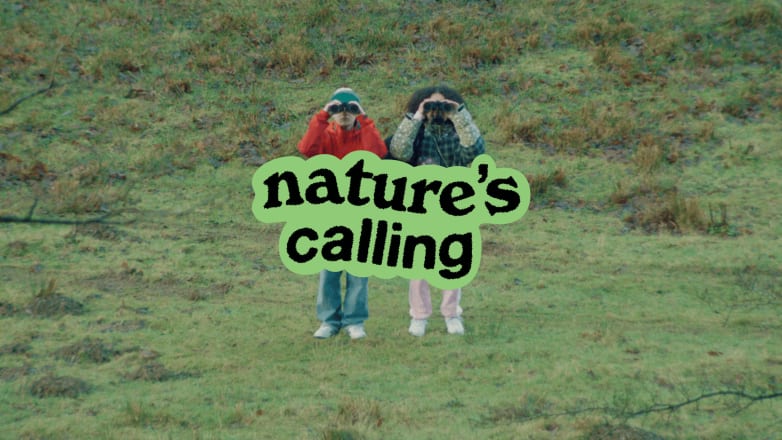Is rollerskating really the answer to the youth mental health crisis?
The new wellness concept of social prescribing is attracting more and more attention and research. But what is it, and does it work?
The new wellness concept of social prescribing is attracting more and more attention and research. But what is it, and does it work?
Could surfing, rollerskating and just getting out a bit more be the key to solving the UK's youth mental health crisis? According to the NHS, one in six people aged five to nineteen have a mental health problem.
While access to NHS talking therapy increased significantly last year, only 39.6% of young people with a mental health condition received treatment through NHS-commissioned community services. For those who do access treatment, the waiting list for treatment is nine weeks in most instances and most individuals referred are on the more acute end of mental health problems. In the case of medication, such as SSRIs, it can also take several weeks to take effect and ultimately won't work for everyone.
As we look towards alternatives to solve the youth mental health crisis, a new buzzphrase has emerged: "social prescribing". Interest in the term surged after it hit the headlines that a trial is launching to give 600 young people access to activities like surfing, rollerskating and gardening while on waiting lists for more formalised - and proven - treatments. The scheme, run by academics from UCL, will also ask those aged 11-18 in 10 parts of England to participate in dance, music, sport and exercise and attend youth clubs.
When speaking about the scheme's logic, Dr Daisy Fancourt, the academic heading up the trial, said; “Social prescribing has the potential to support young people while they wait, by providing access to a range of creative and social activities that could enhance their confidence, self-esteem and social support networks.”
But what is social prescribing, really? And is there any real hope that it could work?
woo presents: breathe
Social prescribing, explained
Social prescribing is a component of universal personalised care (UPC), which is an approach to well-being which aims to give individuals the same choice and control over their care as they do in other aspects of their life. UPC encompasses both public health and social care, and social prescribing is just one component - the others include shared decision making, enabling choice, supported self-management and personalised budgets.
In essence, social prescribing is all about community care and begins with a referral to a link worker. That link worker will listen carefully to your needs and then connect you with services and activities for practical, emotional and social support. Your link worker may also act like a buddy in themselves, providing guidance and mentorship. It's about seeing someone as a person and recognising that they have diverse needs rather than just trying to tackle the one mental health issue they've been diagnosed with.
Social prescribing is relatively new to the NHS and was introduced in 2018 and mentioned as part of its Long Term Plan in early 2019, with a focus on adults - for example, those with mental health conditions, those with complex social needs, individuals with one or more chronic condition or people who are experiencing loneliness and isolation.
It's slightly different to the medical approach of treating mental illness, which often prescribes medication and clinical support, and instead takes a holistic approach to wellbeing and looks to tackle some of the social factors which may lead to or aggravate illness. In this way, it ties into the concept of "population health" which looks at socio-economic and environmental influences on health as a way to reduce health inequalities.
continue watching...
Does social prescribing work?
It's easy to baulk at the idea that rollerskating or surfing is the solution to someone's mental health problems, but really the idea is to build patients' confidence, increase their social interaction and encourage them to trust their own voice. That said, how efficient is social prescribing?
One of the upsides of social prescribing for the NHS is cost. A trial in 2012 - 2014 in Rotherham pointed to a reduction in patients' use of hospital resources and a reduction of NHS costs of £552,000. It also showed a improvements in well-being and better self-management of conditions for participants.
Additionally, there has been a pilot (prior to the recently announced trial from UCL) which showed positive outcomes for youth. In December 2020, The Institute of Connected Communities at the University of East London published a review of the Young People Social Prescribing (YPSP) trial which rolled out social prescribing for young people in Sheffield, Brighton and Hove and Luton in 2018 - 2020. This suggested that social prescribing has positive outcomes for loneliness among young people and can help with more severe cases of mental illness.
But ultimately, there's no real definitive answer about whether social prescribing is an effective approach to health and social care. Research into the matter is scant and existing studies have been flagged for high risk of bias in a 2016 research review. A 2019 research paper has also pointed out that evaluating social prescribing outcomes and efficacy can be a challenge, given the personalised and open-ended nature of these treatment plans.
What do the experts say about social prescribing for youth?
To find out more about why social prescribing is being recommended for young people, we spoke to Dr Marcello Bertotti, a Reader in Community Health at the University of East London and one of the authors of the government-funded review of the YPSP trial.
So, why all the sudden interest in social prescribing for youth? "In the early development of social prescribing, it was a service that was just for adults," Bertotti explains. "However, there is now growing recognition that young people also need [this] recreation."
He also believes that a youth focus on social prescribing could help to positively set up young people's mental health for the rest of their lives. "Around 75% of the mental health issues a person develops in their life time develops by the age of 25," he explains. "So the first part of a person’s life is very important for their mental well-being throughout their life."
Then, there's the resourcing issue that social prescribing can help counteract. "From our research we saw that young people who had emotional or mental health problems find it difficult to access psychological support," he explains. "The current service provisions are inadequate versus the demand. Social prescribing aims to help those people while they are waiting to be seen."
An imperfect present but a hopeful future
In its infancy, social prescribing may seem like it's being treated as a stop gap for greater issues facing the mental health sector, namely a lack of funding. However, social prescribing could have many benefits - the rhetoric of person-centred, community-driven care behind it is certainly convincing. Looking forward, as research and trials increase, we may understand more about how to effectively deliver social prescribing as part of holistic approaches to mental health and well-being or other social and health problems.
Let's have some faith, people!
If you're interested in wellness you can explore at home, check out our ChromaYoga yoga tutorials, expert-led breathwork sessions and innovative soundhealing videos.












